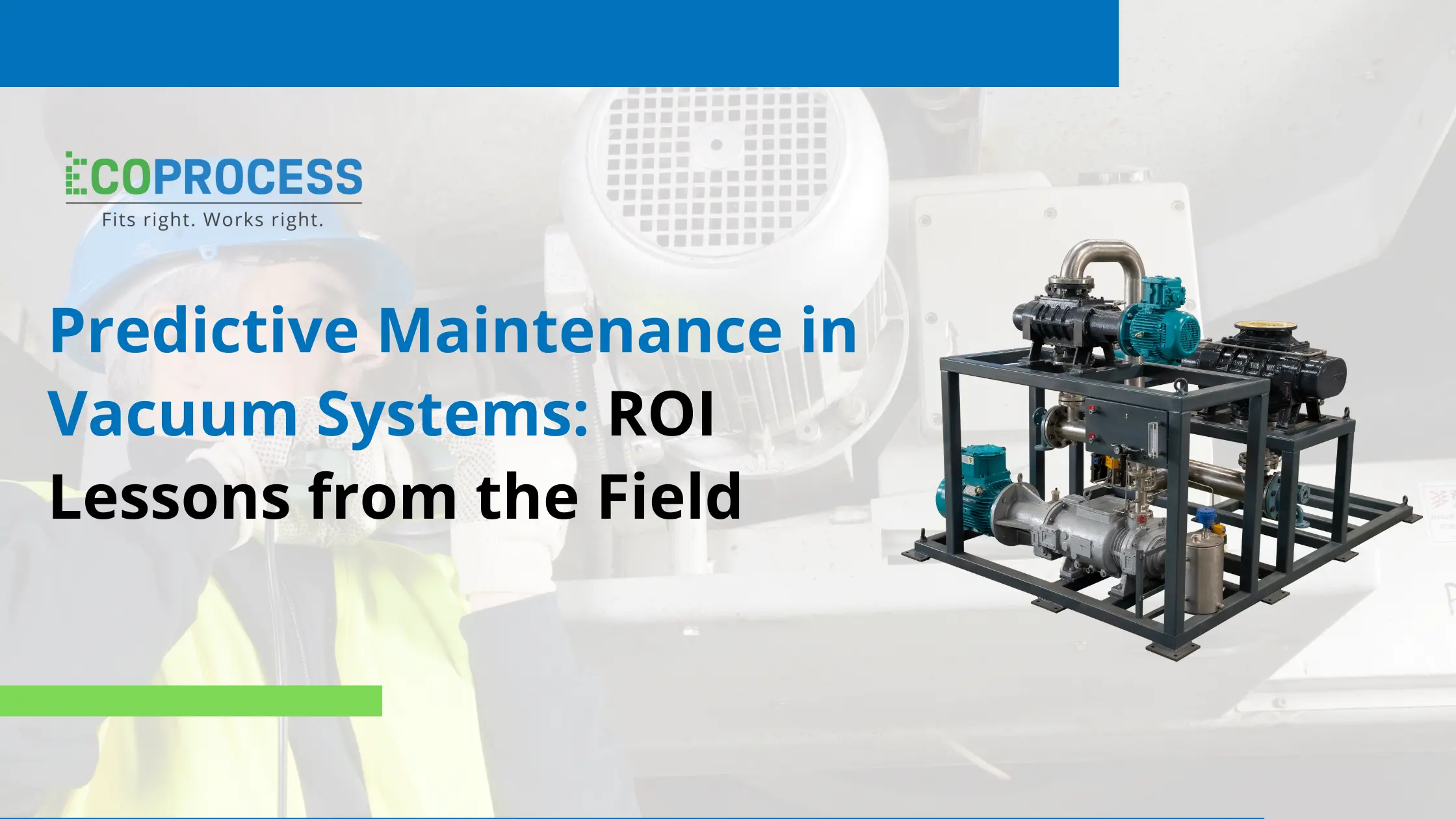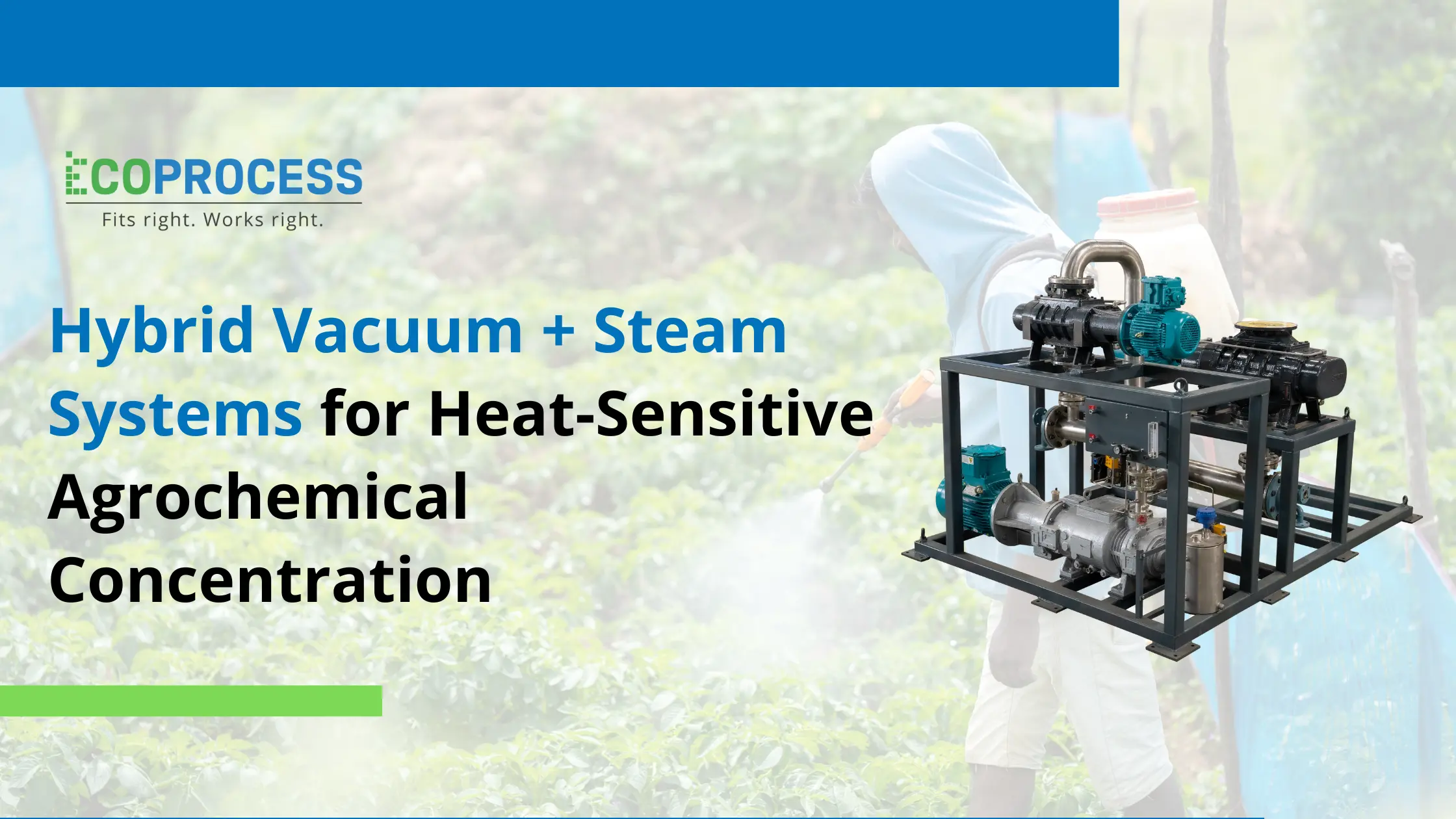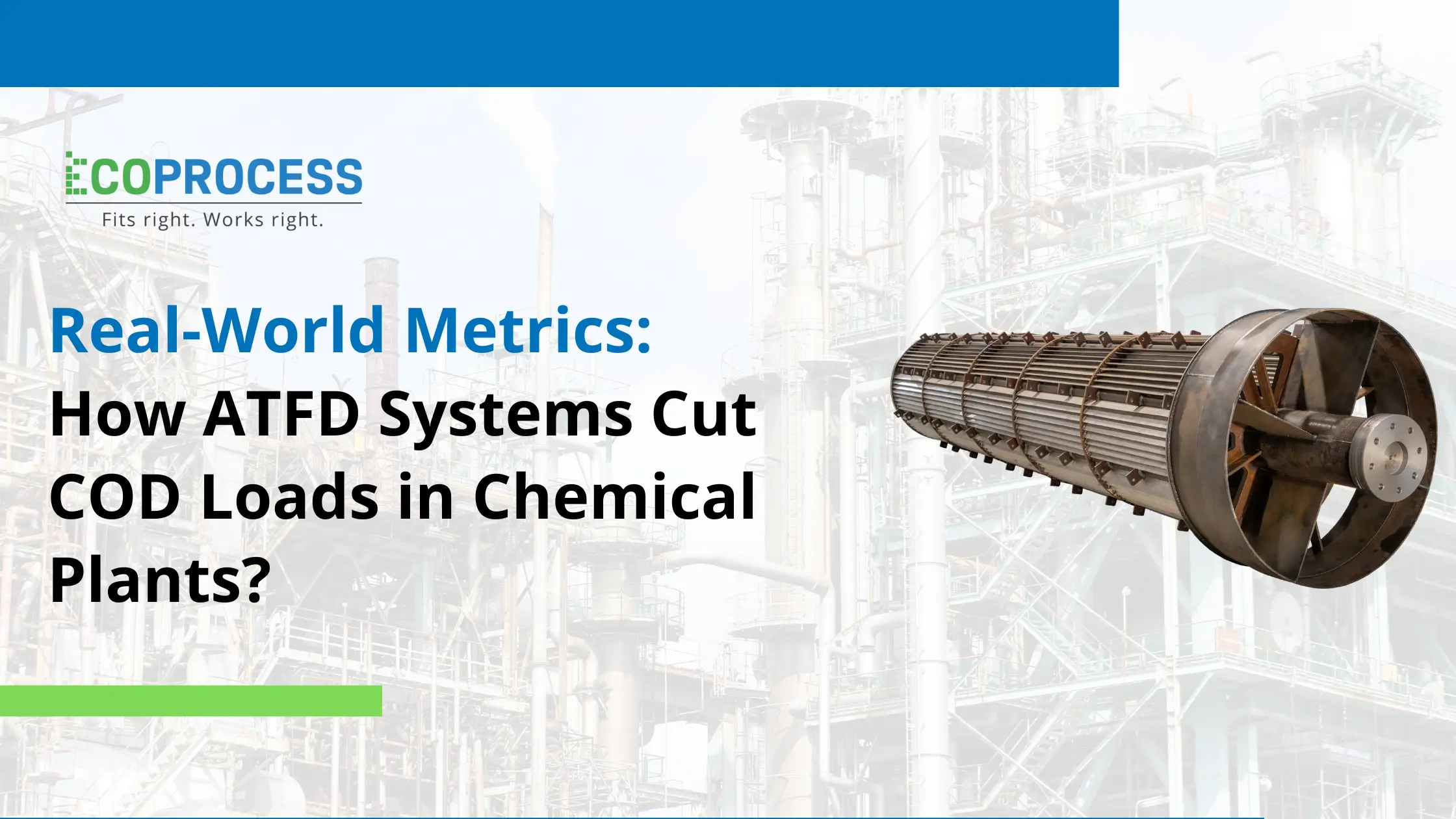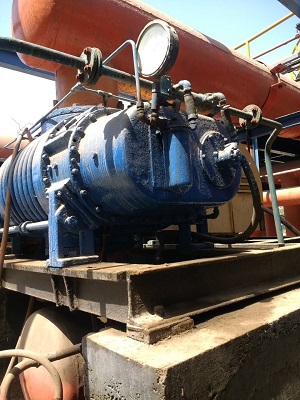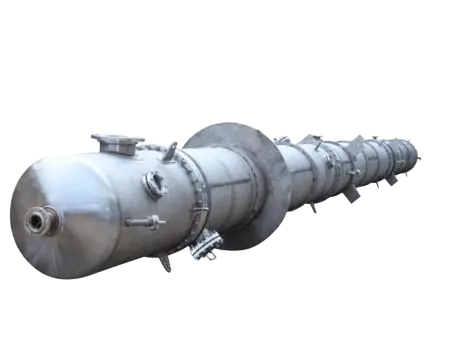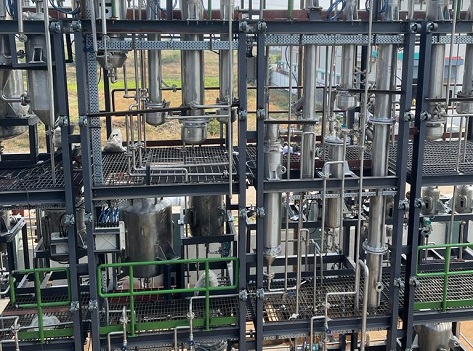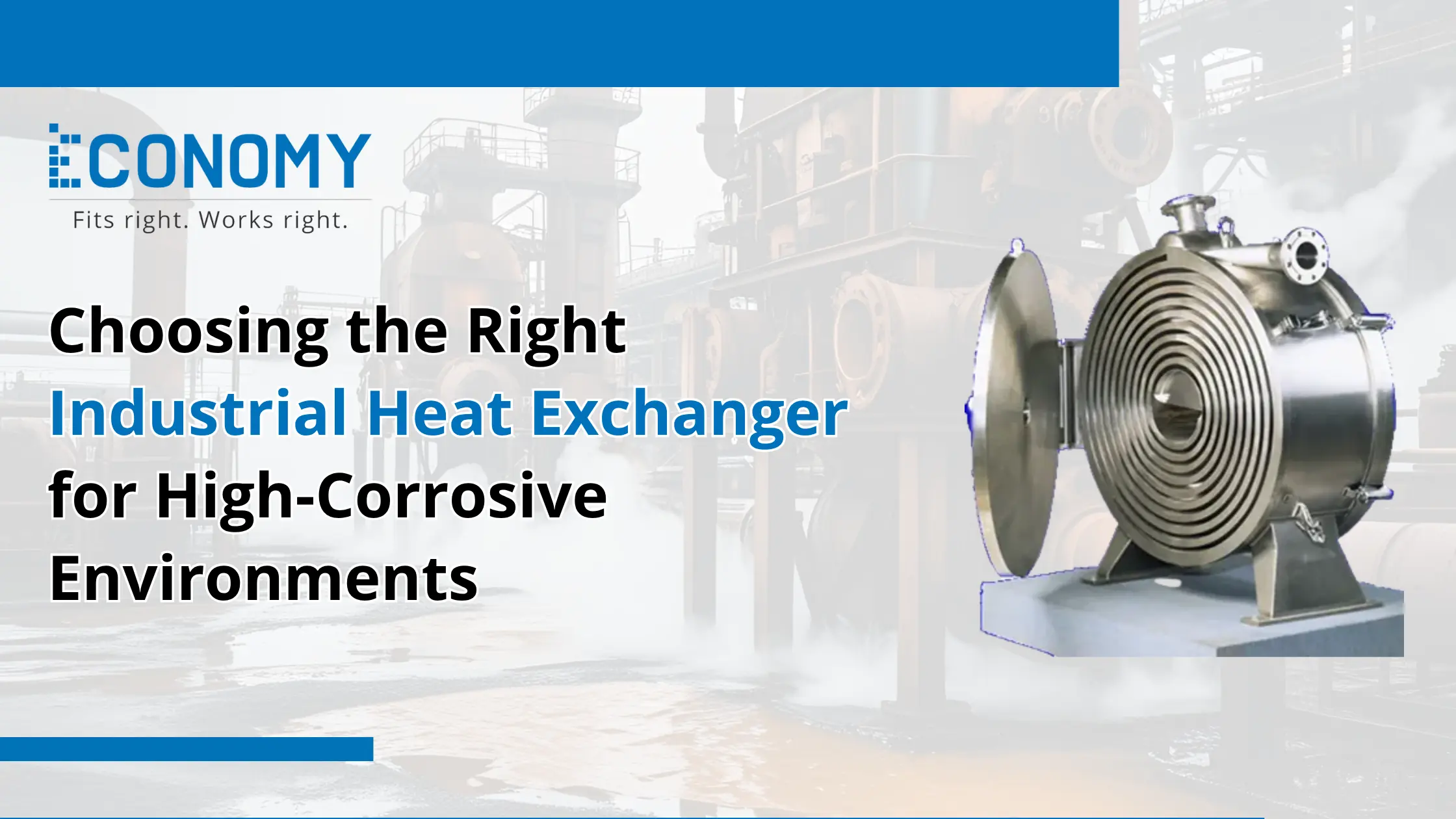
Choosing the Right Industrial Heat Exchanger for High-Corrosive Environments
In a number of industries, controlling heat plays a big role in boosting process efficiency. It maintains safety and keeps equipment up and running for a long time. If the employees are getting in touch with these machines, then finding the right one is very crucial.
Industrial heat exchangers with corrosion accelerate the expiration of traditional systems, increase upkeep costs and can cause unexpected downtime. This blog explains what to look for in heat exchangers for use in corrosive conditions and outlines how EPS Heat Exchangers provide top results.
Understanding Heat Transfer Needs in Industry
Heat exchangers play a major role in chemical processing and power generation. The pharmaceutical industry, wastewater treatment, and food processing. They allow heat to move between several fluids without touching them, so the system can always maintain the best temperature during manufacturing or energy conversion.
All industrial processes require their own particular demands.
-
Processes may require operating at very extreme temperatures, such as very high or very low.
-
Flow Rates: The number of fluids processed in one hour.
-
There are systems in which high pressure must be handled.
-
Kinds of Fluids: Fluids can be aggressive and eat through equipment, sticky or thick or contain pieces of debris.
Corrosive fluids can cause regular metal heat exchangers to fail. These specialized materials and designs make a big difference in these roles.
Choosing the Right Materials for Corrosive Fluids
Whether an Industrial Heat Exchangers lasts and is efficient often depends on its material if it is used in corrosive conditions. It is important that this material can resist being attacked by chemicals, hot and cold temperature cycles and erosion. Common materials are often used in them.
1.Titanium
Titanium stands up very well in seawater, chlorine, and oxidizing acids. Many people use it for desalination and marine tasks, but it is often costly.
2.Tantalum
Hydrofluoric acid is the exception to tantalum’s chemical resistance. Ordinarily, chemists turn to this method only when the hunger for time or yield justifies the expense.
3.Hastelloy
Because of their properties, Hastelloy alloys can be used in very chemical conditions, like those with oxidizers or reducing agents. It is dependable for use in chemical processing for a long period.
4.PTFE (Polytetrafluoroethylene) and Fluoropolymers
They have no metal content and can withstand chemicals well. Such exchangers work well when dealing with acids, alkalis and organic solvent
5.Graphite
Graphite heat exchangers work very well for fluids such as sulfuric and hydrochloric acid. Yet, people must take care of them because they can break easily.
Choosing the right material relies on the type of molecules and the temperature and pressure of your fluid. People must decide how important it is to have great performance, durable shoes or shoes that fit their budget.
Key Benefits of Using Corrosion-Resistant Heat Exchangers
Using corrosion-resistant industrial heat exchangers in factories and industrial sites comes with many perks.
1.Extended Lifespan
Materials resistant to corrosion cut the threat of ageing and save money by having equipment last longer.
2.More reliability for less maintenance
Solid construction means less work is needed to maintain and run buildings.
3.Improved Safety
Irregularities in heat exchanger for corrosive fluids from hot or corrosive materials may result in serious problems. By using strong and corrosion-resistant materials, we maintain safety and the condition of structures.
4.Consistent Efficiency
The growth of scale or corrosion leads to a fall in heat transfer efficiency. They retain their efficiency longer because they are built to resist corrosion.
5.Complying with the law and preserving sustainability
Because of their advanced tools, high-end systems make sure chemical leaks do not happen and that energy consumption is greatly reduced.
EPS Heat Exchanger Portfolio: Tailored for High-Corrosion Environments
EPS (Engineered Process Solutions) has developed a set of industrial heat exchangers that are built to resist both high corrosion and temperature. Within their product range, they provide:
-
Shell and Tube heat exchangers that use PTFE lining.
Perfectly suitable for acids and solvents, these heat exchangers are built from metal and covered with PTFE for enhanced resistance to chemical attack. Many separations occur in the chemical and pharmaceutical fields.
-
Heat exchangers are built entirely with fluoropolymers.
Because they are constructed from PVDF or FEP fluoropolymers, these units stand up to nearly all chemicals that would ruin other plastics. They are made with non-metal materials and are required for ultrapure or chemical processes that react easily.
-
Graphite Block Heat Exchangers
Block exchangers from EPS are designed to be used with acid services, including sulfuric acid, hydrochloric acid and hydrofluoric acid. Because their design is modular, maintenance and heat transfer are both easy.
-
Tantalum-Encased Heat Exchangers
Robust protection in conditions with high pressures and temperatures can be found in tantalum-clad exchangers from EPS.
-
Compact and Modular Designs
Space-restricted facilities can choose EPS as the design compactness does not reduce their performance. It is simple to use and grow these processes as businesses change.
EPS offers custom solutions that fit each industry’s particular problems.
Real-World Use Cases
-
Chemical Processing
The firm that produces nitric acid chose EPS PTFE-lined shell and tube models instead of the stainless steel exchangers they were previously using. Outcome: Maintenance costs for corrosion were lowered by 60% in the first year and a half.
-
Pharmaceutical Manufacturing
EPS's fluoropolymer heat exchangers are applied in pharmaceutical API production to ensure both purity and safety for systems that operate using solvents and acids at high temperatures.
-
Electroplating Industry
There are many corrosive chemicals in the electroplating process. EPS fluoropolymer heat exchangers maintained the temperature and performed even with acids, enhancing both stability and the quality of the process.
-
Pulp and Paper Mills
Both the bleaching and chemical recovery areas of pulp mills work with strong chemicals like chlorine dioxide. With these conditions, EPS graphite block exchangers delivered both strength and high efficiency.
Conclusion
For industrial heat exchangers to survive in places with high corrosion, it’s necessary to evaluate their fluid properties, heat variations and how durable they will be over time. EPS Heat Exchangers, thanks to having a wide range of resistant designs and materials, are able to provide suitable solutions for very harsh processes. With the right exchanger at the start, industries can ensure more reliable running, less risk and more cost efficiency.
FAQs
Q1: Which materials are best for heat exchangers with corrosive fluids?
Materials like PTFE, graphite, titanium, and Hastelloy offer excellent corrosion resistance, making them ideal for handling aggressive acids, solvents, and harsh chemicals in industrial processes.
Q2: How does EPS ensure safety and longevity in corrosive environments?
EPS uses high-grade corrosion-resistant materials, precision engineering, and modular designs to prevent leaks, enhance durability, and reduce maintenance, ensuring long-term safety and operational reliability.
Q3: What types of corrosion resistance are offered by EPS heat exchangers?
EPS heat exchangers provide chemical, thermal, and electrochemical corrosion resistance using fluoropolymers, graphite blocks, and metal alloys designed for aggressive environments like acids, alkalis, and oxidizers.
Q4: Which industries benefit the most from EPS corrosion-resistant heat exchangers?
Chemical processing, pharmaceuticals, electroplating, pulp and paper, and wastewater treatment industries benefit most, where handling corrosive fluids and maintaining process integrity are mission-critical.
